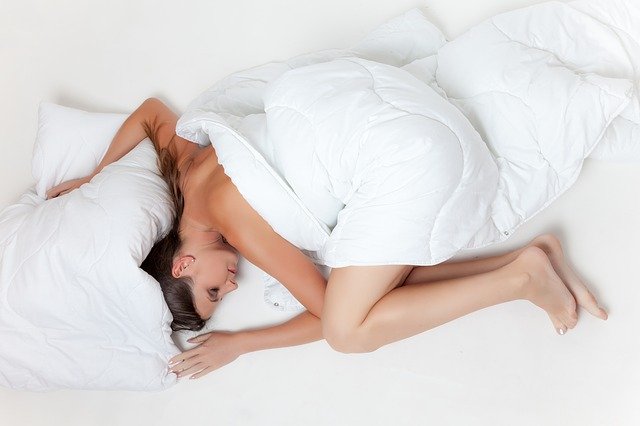No products in the cart.
How Does Poor Sleep Affect Your Brain Health?

Our bodies tell no lies and no matter how hard we try to hide the truth, it comes tumbling out in our tired faces, heavy eyes, lack of concentration and fleeting memory. Your brain needs sleep; how long will you live in denial? (Image Credit: Dieter Robbins/Pixabay)
Here’s how sleep messes with your brain:
1. Forgetting Things at an Alarming Rate?
This could be due to poor sleep. One major role that sleeps plays, is to consolidate our long-term memory.
This is achieved through the rather complex mechanism of strengthening neural connections and setting aside unwanted ones. You see, during the daytime, the brain makes lots of connections- some of them unneeded. While asleep, your brain then sifts through those connections and prunes away the ones that aren’t worth saving.
If you learn something e.g. a new task, or some complex subject and sleep afterward, your brain solidifies it. Lack of proper sleep leads to a lack of this pertinent function of our brains. Additionally, poor sleep can lead to too little acetylcholine, a neurotransmitter essential for encoding and retrieving memories, which can further impair your ability to retain and recall important information.
2. Sleep Helps Your Brain Get Rid of Toxins
Exciting, isn’t it? It’s been discovered, much to our advantage, that sleep increases the brain’s potential of clearing out toxins from the body’s system than whilst awake. This has been noted to include those toxins linked with Alzheimer’s disease (i.e. β-amyloid protein)
According to a Professor of Clinical Neurology, the brain’s lymphatic system is noted to open up at night and toxins are gotten rid off much faster.
This is also facilitated by the fact that the space between brain cells expand significantly during sleep, allowing for lots of garbage to be discarded through the cerebrospinal fluid.
3. Smart People Sleep…Here’s Why
It’s pretty obvious that sleep affects our cognitive abilities, and very smart people know better than to repeatedly skip out on much-needed quality time in bed.
Sleep deprivation, can, in fact, affect your decision-making process as well as your ability to multitask. This, for example, is why lots of sleep-deprived individuals have had near-miss episodes of almost getting into accidents while driving; as driving is one of the most intense multitasking activities we can be involved in.
Your attention span is also going to be more limited if you aren’t getting a good amount of sleep, and studies have shown that we are more likely to perform poorly on neuro-behavioural tasks that involve both attention and long-term memory when we deal our cards wrongly, with regards to sleep. Don’t be that person.
4. Poor Sleep Aids and Abets Depression
People with depression are aptly identified by their history of poor sleep; nonetheless, some of them might sleep a lot.
However, sleep deprivation is a crucial finding in people who have either just sunk into depression, or who have worsened episodes of previously diagnosed depression. This link is particularly established in those who routinely sleep for less than six hours per night, as insomnia is linked to anxiety and depression.
One critical explanation for this link is that the area of the brain which handles the body’s sleep-wake pattern is disrupted in depressed individuals.
Apart from this, mattresses affect the quality of our sleep, depending on the individuals, like if a mattress that feels great for a person might not be suitable for another one. Like if someone having weight more than average then they should go for Winkbeds, a great mattress for heavier folks. So, you should look for a mattress according to your needs.
5. Creativity Diminishes Without Adequate Sleep
Of all individuals, it is those whose jobs deal with creativity; making something out of nothing, that should worry most about getting enough sleep. This is because they are the worst to be hit by the effects of poor sleep, with regards to their ability to carry out work functions.
Sleep births inspiration, and makes your brain open enough to create your own thoughts and less likely to blindly follow the line of thinking of others.
There are studies to back up this curious linkage between sleep and creativity. For example, one study on sleep-deprived participants (who were deprived of sleep for 32 hours), showed that they performed worse on most types of divergent thinking- including originality and flexibility.
Another study in which participants had to learn numbers to complete a task, found out that people with adequate sleep performed better than those participants with less-than-adequate sleep.
Every creative has felt that raw burst of energy and creativity flowing through their veins after waking up from a dose of healthy sleep. Now, that’s the powerful impact of restful sleep!
















Leave a Reply